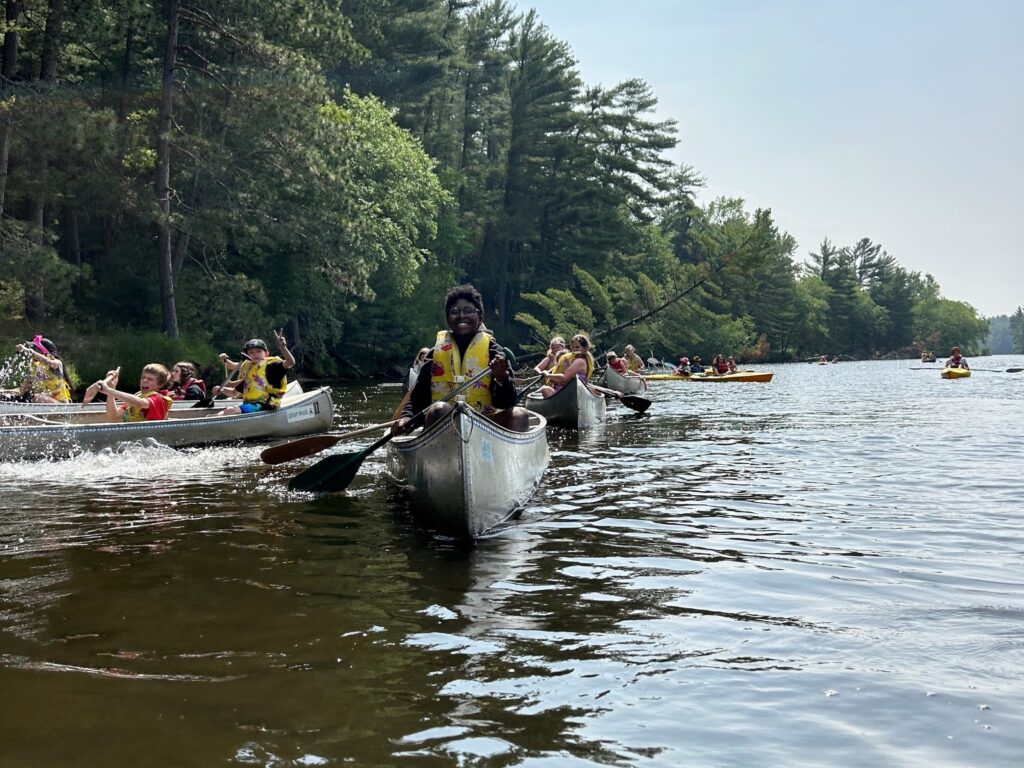UW–Madison Extension awarded nearly $340,000 in grant funding to 13 projects that bring innovation to the division’s outreach mission. Each year, Extension seeks proposals for new projects that find innovative solutions to address challenges facing Wisconsin communities.

Engaging Youth in Monitoring Aquatic Species Using Environmental DNA (eDNA)
Amy Workman, Natural Resources Institute
This project will engage youth participants in an innovative program to monitor aquatic invasive species using environmental DNA (eDNA). A backward design model will be used to create outreach materials to increase science literacy.
Assessing Influences of Participation in Worker Cooperatives in Wisconsin: A Model for Community Development and Workplace Equity
Yanni Liang, Community Development Institute
Worker cooperatives may prevent job losses from the retirement of entrepreneurs by converting their businesses into worker-owned enterprises. This project will investigate structural influences on converting businesses into cooperatives, including barriers to worker participation.
Food, Farm and Environment Mobile Learning Lab
Kelly Westlund, Community Development Institute
A working group will host several workshops to increase communities’ capacity and facilitate partnerships with state and federal agencies. Participants will review case studies that provide a road map for rural communities to increase housing.
Wisconsin Department of Workforce Development (DWD) Youth Apprenticeship Program Pilot
Molly Bodde, Natural Resources Institute
Upham Woods Outdoor Learning Center will expand DWD’s youth apprenticeship program to include Extension. DWD’s program is a nationally recognized talent acquisition strategy in which employers hire high school juniors and seniors to gain paid work experience while taking courses related to a specific career pathway.
Social Joinery: A Toolbox for Belonging
Elizabeth McCrank, Community Development Institute
This project will create intergenerational groups of community members to build a sense of belonging both within a particular community and with other communities across Wisconsin.
Supporting Latinx Youth and Families in High School and College Access through Innovative Bilingual Staffing and Programs
Adam Trunzo, Positive Youth Development Institute
Juntos — which means “together” in Spanish — brings together Latinx families to gain knowledge and skills that ensure academic success and make higher education a family goal. This funding will support the creation of a part-time coordinator position to organize workshops across Wisconsin.
Beyond Alt Text: Using a Statewide Geologic Map to Advance Accessibility for Complex Data Visualizations
Caroline Rose, Natural Resources Institute
Existing university guidelines for media accessibility are insufficient for very complex data visualizations such as geologic maps. This project will explore novel design strategies to create accessible maps, using the soon-to-be-published Quaternary Geology of Wisconsin as a case study.
Community Engagement for Environmental Justice
Sharon Lezberg, Community Development Institute
This project will explore culturally relevant engagement methods to understand communities’ needs related to the impacts of climate change. Working with community ambassadors to design sustainability and climate resilience initiatives, the project will provide them with the resources necessary to advocate for their communities.
Harvesting the Sun Twice: Agrivoltaics and Our Rural Communities
Carolyn Ihde and Will Fulwider, Agriculture Institute
Agrivoltaics is the dual use of land for solar energy production and agriculture. This project will craft recommendations to support agrivoltaics in Wisconsin and evaluate community perceptions of agrivoltaics as a solution to land conflict regarding utility-scale solar energy production.
It’s a Tarp!: Turning to the Dark Side of Community Garden Weed Management
Martin Ventura, Community Development Institute
Weed pressure is a frequent topic of concern and reason why gardeners abandon plots. As a result, there is a strong need to promote ecologically sound and cost-effective weed management in community gardens. This project will demonstrate the paired use of occultation (tarping) and cover cropping to help growers overcome weed pressures while supporting the health of urban working soils.
Cultivando Conecciones: Youth Employment, Community Leadership and Garden Program
Leslie Quevedo, Positive Youth Development Institute
Cultivando Conecciones, or Growing Connections, is a proven program model that empowers youth participants through experiential learning and community leadership opportunities. Cultivando Conecciones will deepen its impact by enhancing programming to include STEM curriculum and expanding access through the creation of culturally and linguistically relevant materials.
Estimating Custom Rate for 2024 Wisconsin Farm Operations
Paul Mitchell, Agriculture Institute
Many Wisconsin farmers hire custom operators to perform a variety of tasks, and the prices that farmers and operators agree on for these services are not transparent and fluctuate every year. This project will inform Wisconsin farmers about current custom rates via a survey, creating a reference point during negotiations.
The New North: Integrating Newcomers and Communities in Northern Wisconsin for Civic Health and Sustainable Rural Futures
Lissa Radke, Community Development Institute
New residents continue to move to Ashland County; however, they are not building relationships with other residents. Building upon results from a pilot study, this project aims to strengthen the social infrastructure to integrate new community members into rural communities in northern Wisconsin.